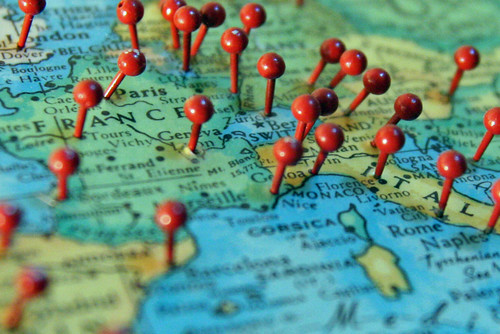When Geolocation Doesn't Locate
Geolocation in today's smartphones is a wonderful thing. The A-GPS chip in your phone talks to the satellites whizzing around above our heads and asks them where we are. If that doesn't work then a graceful degrading process, via public wifi triangulation and then cell tower triangulation will tell our phones where we are. Except when something odd happens.
And odd is the only thing you can use to describe the fact that I'm currently sitting in Teddington in Southwest London and thanks to some glitch in the matrix, either Foursquare or my phone's A-GPS seems to think that a voting station in New England, yes, New England USA is close and local to me.
Geolocation is wonderful except when it doesn't.

